Guest blogging is one of the most powerful tools in a marketer’s arsenal, offering the opportunity to expand your reach, build authority, and improve your website’s SEO.
Whether you’re looking to establish thought leadership, drive targeted traffic, or create backlinks, guest blogging remains a tried-and-true strategy.
In this ultimate guide, we’ll cover everything you need to know to master the art of guest blogging, from finding the right opportunities to crafting impactful posts that deliver results.
Contents:
- What is Guest Blogging?
- Benefits of Guest Blogging
- How to Find Guest Blogging Opportunities
- How to Pitch Guest Posts Effectively
- Writing High-Quality Guest Posts
- Maximizing the Impact of Guest Blogging
- Common Mistakes to Avoid
- Tracking and Measuring Success

1. What is Guest Blogging?

Guest blogging, also known as guest posting, involves writing and publishing articles on another website or blog.
The host site benefits by receiving high-quality, relevant content, while the guest author gains exposure, traffic, and often a backlink to their own website.
It’s a symbiotic relationship that, when executed properly, can provide long-term value for both parties.
Guest blogging is not just about SEO.
It’s about building relationships, establishing credibility, and connecting with audiences you might not otherwise reach.
When done strategically, it can elevate your brand and position you as an authority in your niche.
2. Benefits of Guest Blogging

Guest blogging offers numerous advantages, making it a cornerstone strategy for marketers and businesses.
Here are some of the key benefits.
Builds Authority
Publishing guest posts on reputable websites is one of the most effective ways to position yourself as an expert in your field.
These platforms already have established audiences that trust their content, so having your work featured there immediately lends credibility to your expertise.
It’s not just about writing articles—it’s about sharing unique perspectives, actionable advice, and industry insights that resonate with readers.
By consistently contributing high-quality, well-researched content, you demonstrate thought leadership and a deep understanding of your niche.
Over time, this builds recognition for your name or brand, making you the go-to resource for reliable information in your industry.
This authority can lead to opportunities beyond blogging, such as invitations to speak at events, collaborate with other professionals, or even secure new clients who trust your expertise based on the strength of your guest contributions.
Boosts SEO

One of the most significant benefits of guest blogging is its ability to enhance your website’s SEO performance.
Quality backlinks from guest posts act as endorsements from reputable websites, signaling to search engines that your site is a trustworthy and authoritative source.
These backlinks serve as pathways that direct both search engine crawlers and human readers to your content, increasing your visibility across the web.
In addition to improving your rankings for target keywords, backlinks from diverse, high-authority domains help build a more robust link profile.
This diversity reduces the risk of appearing spammy and showcases your site’s relevance across various contexts.
Furthermore, guest blogging allows you to strategically place anchor text—words or phrases hyperlinked to your site—that aligns with your keyword strategy, giving your rankings an extra boost.
Guest posts also offer indirect SEO benefits.
By driving more referral traffic to your site, they can increase user engagement metrics like time on site and pages per session, which are factors search engines consider when ranking content.
Additionally, as more people discover your site through guest blogging, they may share your content further, creating organic backlinks that amplify your SEO efforts even more.
Drives Targeted Traffic
Guest blogging is an excellent way to drive targeted traffic to your website by connecting with an audience that is already engaged with a particular topic or niche.
When you contribute valuable and relevant content to another site, readers who find your article helpful are more likely to click through to learn more about you and your offerings.
This creates a steady stream of visitors who are genuinely interested in what you provide, increasing the likelihood of conversions.
Additionally, placing links within the article body, where contextually relevant, can guide readers directly to specific resources or products on your site.
These targeted links, combined with the credibility of the host site, ensure that visitors arriving from guest posts are already primed to engage with your content.
Over time, this consistent influx of high-quality traffic can improve your site’s overall performance, from engagement metrics to sales.
Expands Your Network

Guest blogging is more than just a content strategy; it’s a relationship-building tool.
By collaborating with other bloggers, site owners, and industry leaders, you open the door to a wealth of opportunities.
Building these connections can lead to joint ventures, cross-promotions, or even invitations to participate in panels, webinars, and podcasts.
Moreover, establishing yourself within a network of professionals creates a mutually beneficial ecosystem where you can share resources, exchange ideas, and support one another’s growth.
Over time, these relationships strengthen your position in the industry, making you more visible to potential collaborators, clients, and audiences.
Networking through guest blogging also increases your access to insider information, trends, and tools, keeping you ahead in your niche.
Increases Brand Awareness
Guest posting is a powerful way to expand your brand’s reach by exposing it to audiences beyond your current scope.
Each guest post introduces your business, products, or services to new readers, many of whom may not have encountered your brand otherwise.
This exposure helps build familiarity and trust over time, laying the foundation for stronger customer relationships.
The repeated presence of your brand on reputable platforms reinforces its image as a reliable and knowledgeable entity.
With every guest post, you solidify your name as a thought leader in your industry, making it easier for people to remember and recognize your business.
The more visible your brand becomes across high-traffic, well-regarded platforms, the more likely it is to attract attention from media outlets, influencers, and potential partners, amplifying its overall presence.
3. How to Find Guest Blogging Opportunities

Finding the right websites to guest post on is critical to success. Here’s how to identify opportunities:
Use Search Operators
Google search operators are an effective way to uncover guest blogging opportunities.
Try queries like:
"Your Niche" + "write for us""Your Niche" + "guest post guidelines""Your Niche" + "submit a guest post"
These phrases can help you find websites actively seeking guest contributors.
Analyze Competitors
Analyzing your competitors’ guest blogging efforts is a strategic way to identify opportunities and refine your approach. Here are some key points to consider when leveraging competitor insights:
- Discover High-Authority Sites: Tools like Ahrefs, SEMrush, or Moz can help you uncover the websites where your competitors are contributing guest posts. These platforms often indicate sites that are not only reputable but also open to guest contributions in your niche, saving you the effort of trial and error.
- Identify Successful Content: Look at the topics and types of content your competitors are publishing. By analyzing which articles receive the most engagement—whether through comments, social shares, or backlinks—you can determine what resonates most with the target audience.
- Spot Gaps in Your Strategy: Reviewing your competitors’ guest blogging activity can reveal sites or niches you haven’t targeted yet. This helps you diversify your efforts and tap into new audiences.
- Learn from Their Style: Pay attention to their writing tone, structure, and approach to guest blogging. This can provide inspiration and help you adapt your style to match the preferences of high-authority sites.
- Refine Your Pitch: By understanding the kind of content that works for your competitors, you can craft more compelling pitches tailored to the needs of the host site.
By analyzing your competitors’ guest blogging activities, you gain a clearer understanding of what works and how to position yourself effectively within your niche.
This proactive approach helps you maximize the impact of your guest blogging strategy.

Leverage Social Media

Social media platforms like LinkedIn and X (former Twitter) are treasure troves for uncovering guest blogging opportunities.
These platforms host a vibrant community of industry professionals, bloggers, and thought leaders who frequently share insights, collaborations, and open calls for guest contributions.
By actively engaging with these platforms, you can stay updated on the latest opportunities and trends in your niche.
On LinkedIn, you can join industry-specific groups where professionals often exchange guest posting opportunities or discuss collaborations.
By participating in these discussions, you can establish connections with potential host sites and demonstrate your expertise.
Additionally, following key influencers and companies in your field can help you identify blogs that frequently accept guest contributions.
X (Twitter), on the other hand, is ideal for real-time updates.
Many bloggers and site owners use hashtags like #GuestPost or #WriteForUs to announce openings for guest authors.
By following these hashtags, as well as influential accounts in your niche, you can quickly find opportunities tailored to your expertise.
Engaging with posts, retweeting, or directly reaching out to bloggers through X's direct messaging can further enhance your chances of landing a guest blogging opportunity.
By leveraging social media strategically, you not only uncover guest blogging opportunities but also build relationships with key players in your industry.
This approach keeps you connected and helps you position yourself as a valuable contributor in your niche.
Join Blogging Communities
Participating in blogging communities can be a game-changer for finding guest blogging opportunities. Here’s how you can make the most of these platforms:
- Engage in Niche-Specific Groups: Join online communities tailored to your industry or niche. Platforms like Reddit and specialized forums often have threads or sections dedicated to guest blogging and content collaborations.
- Explore Quora Discussions: Quora is not just a Q&A platform; it’s also a space where bloggers and marketers exchange ideas. By answering relevant questions and participating in discussions, you can connect with like-minded professionals who may share guest posting opportunities.
- Contribute Value First: Before seeking opportunities, establish yourself as a valuable member of the community. Share insights, answer questions, or provide feedback to build trust and credibility. Active participation makes others more likely to collaborate with you.
- Look for Collaboration Posts: Many communities have dedicated sections or threads where members post guest blogging opportunities or seek contributors. Regularly monitor these spaces to stay updated on openings that align with your expertise.
- Reach Out Directly: Once you’ve identified potential opportunities, don’t hesitate to reach out to bloggers or site owners within the community. A polite, well-crafted message that highlights your experience and value can open the door to collaborations.
By joining blogging communities and actively engaging, you can uncover unique opportunities, build relationships, and position yourself as a sought-after contributor in your field.
4. How to Pitch Guest Posts Effectively

A great pitch is the key to getting your guest post accepted.
Crafting a winning proposal starts with thorough research. Before reaching out, take time to study the website’s content, audience, and style.
Understanding what resonates with their readers allows you to tailor your pitch effectively. Propose ideas that align with their tone and address topics relevant to their audience’s interests.
Personalization is crucial when writing your pitch email.
Address the editor or site owner by name, and reference specific articles or features of their site that you admire. This shows genuine interest and demonstrates that you’ve taken the time to understand their platform.
A personal touch makes your proposal stand out in a sea of generic requests.
Include 2-3 topic ideas that are well-thought-out and relevant to their content strategy.
Briefly explain why each topic would be valuable to their readers and how it fits seamlessly into their niche. This helps the recipient see the immediate benefit of accepting your guest post.
Establish your credibility by highlighting your expertise and achievements.
Share examples of your previous work or links to published articles that showcase your writing skills and knowledge in the field. This helps build trust and reassures the editor of your ability to deliver high-quality content.
Lastly, keep your email concise and professional.
Avoid long-winded explanations or unnecessary details. Make your proposal clear, error-free, and easy to read.
Respect the recipient’s time by providing all necessary information upfront, making it simple for them to assess and respond to your pitch. A well-crafted, personalized email significantly increases your chances of success.
5. Writing High-Quality Guest Posts

Once your pitch is accepted, focus on creating a guest post that stands out.
Understand the Target Audience
Write with the host site’s audience in mind. Use language, tone, and examples that resonate with their readers.
Provide Value
Your guest post should offer actionable insights, unique perspectives, or in-depth analysis.
Aim to educate, entertain, or inspire the audience.
Optimize for SEO
Incorporate relevant keywords naturally, use proper formatting (headings, bullet points), and include internal and external links to credible sources.
Include a Strong Call-to-Action
End your post with a clear and compelling CTA, encouraging readers to engage further—whether it’s visiting your website, signing up for a newsletter, or exploring more content.
6. Maximizing the Impact of Guest Blogging

Guest blogging doesn’t end with hitting the publish button—it’s only the beginning of unlocking its full potential.
To truly maximize the impact of your guest posts, start by promoting them across your social media channels.
Share the post with your followers on platforms like LinkedIn, X (Twitter), and Facebook, tailoring your message to each audience.
Use attention-grabbing captions and engaging visuals to encourage clicks and shares.
Tag the host website and thank them for the opportunity, which not only builds goodwill but also increases the chances of your post being reshared by them to their own audience.
Engaging with comments on your guest post is another powerful way to amplify its reach and effectiveness.
Whether comments appear on the host website or social media, respond thoughtfully to readers’ questions and feedback.
This interaction fosters a sense of community and positions you as an approachable expert.
Thoughtful engagement can also prompt readers to visit your website or follow you for more insights.
Leverage the exposure from your guest post to build your email list.
If your post includes a link to a lead magnet—such as a free guide, checklist, or webinar—you can convert readers into subscribers.
Make sure your landing page is optimized to capture these leads efficiently.
Once readers are part of your email list, you can nurture them through targeted content and offers, turning casual visitors into loyal followers or customers.
Tracking the performance of your guest post is essential for understanding its impact.
Use analytics tools to monitor metrics such as referral traffic, time on page, and conversion rates.
This data helps you assess whether the post resonated with its audience and provides insights for improving future guest blogging efforts.
Additionally, monitor social media shares and backlinks generated from your post to evaluate its broader influence.
Finally, use the visibility gained from guest blogging to strengthen your personal or professional brand.
Include the guest post in your portfolio or feature it in your content marketing materials.
By showcasing your contributions on high-quality platforms, you reinforce your authority and credibility, making it easier to secure future guest blogging opportunities or collaborations.
These efforts ensure that each post delivers long-term benefits well beyond its initial publication.
7. Common Mistakes to Avoid

When it comes to guest blogging, avoiding common mistakes is crucial to maintaining your credibility and maximizing the value of your efforts.
One of the most detrimental errors is spamming pitches to multiple websites without tailoring them to each platform.
Editors and site owners can easily recognize generic emails, and these are often ignored or rejected outright.
Instead, take the time to craft personalized pitches that demonstrate a clear understanding of the host site’s content, tone, and audience.
Neglecting the guidelines provided by the host site is another frequent misstep.
Many websites outline specific requirements for guest submissions, including word count, formatting, and preferred topics.
Ignoring these rules not only wastes the editor’s time but also harms your chances of acceptance.
Always review and adhere to the site’s guidelines to show professionalism and respect for their process.
Prioritizing quantity over quality is a tempting but flawed approach.
Submitting multiple mediocre posts to various sites is far less effective than contributing a few well-researched, impactful articles to reputable platforms.
High-quality content that provides genuine value to readers is more likely to generate engagement, backlinks, and long-term benefits for your brand.
Writing overly promotional content is another pitfall to avoid.
While guest blogging offers an opportunity to showcase your expertise, it’s not the place for blatant self-promotion or sales pitches.
Readers are looking for insightful, informative content, not advertisements.
Focus on delivering value and establishing trust, which will naturally lead readers to seek out more about you and your offerings.
Always align your content with the host site’s standards and audience expectations.
Failing to do so can result in rejection or damage to your reputation.
Remember that guest blogging is a collaborative effort; your content should complement the host’s goals while still reflecting your unique perspective.
By avoiding these common mistakes, you can build stronger relationships with host sites, produce meaningful content, and achieve greater success with your guest blogging strategy.
8. Tracking and Measuring Success

Tracking and measuring the success of your guest blogging efforts is essential to ensure your time and energy yield meaningful results.
Begin by monitoring key metrics such as referral traffic, engagement levels, backlinks, and conversions.
These indicators provide valuable insights into how well your guest posts resonate with their intended audience and contribute to your goals.
Leverage tools like Google Analytics to analyze traffic coming from your guest posts, identifying which articles and platforms drive the most visitors.
UTM parameters are also invaluable for tracking specific links and campaigns, allowing you to measure the effectiveness of your promotional strategies with precision.
By regularly evaluating these metrics, you can identify what works, refine your approach, and make data-driven decisions to maximize the impact of your guest blogging efforts.
Conclusion
Guest blogging is a powerful strategy that can elevate your brand, boost your SEO, and expand your network.
By following this guide, you can master the art of guest blogging and unlock its full potential.
Start identifying opportunities, crafting compelling pitches, and writing high-quality posts to grow your online presence today!

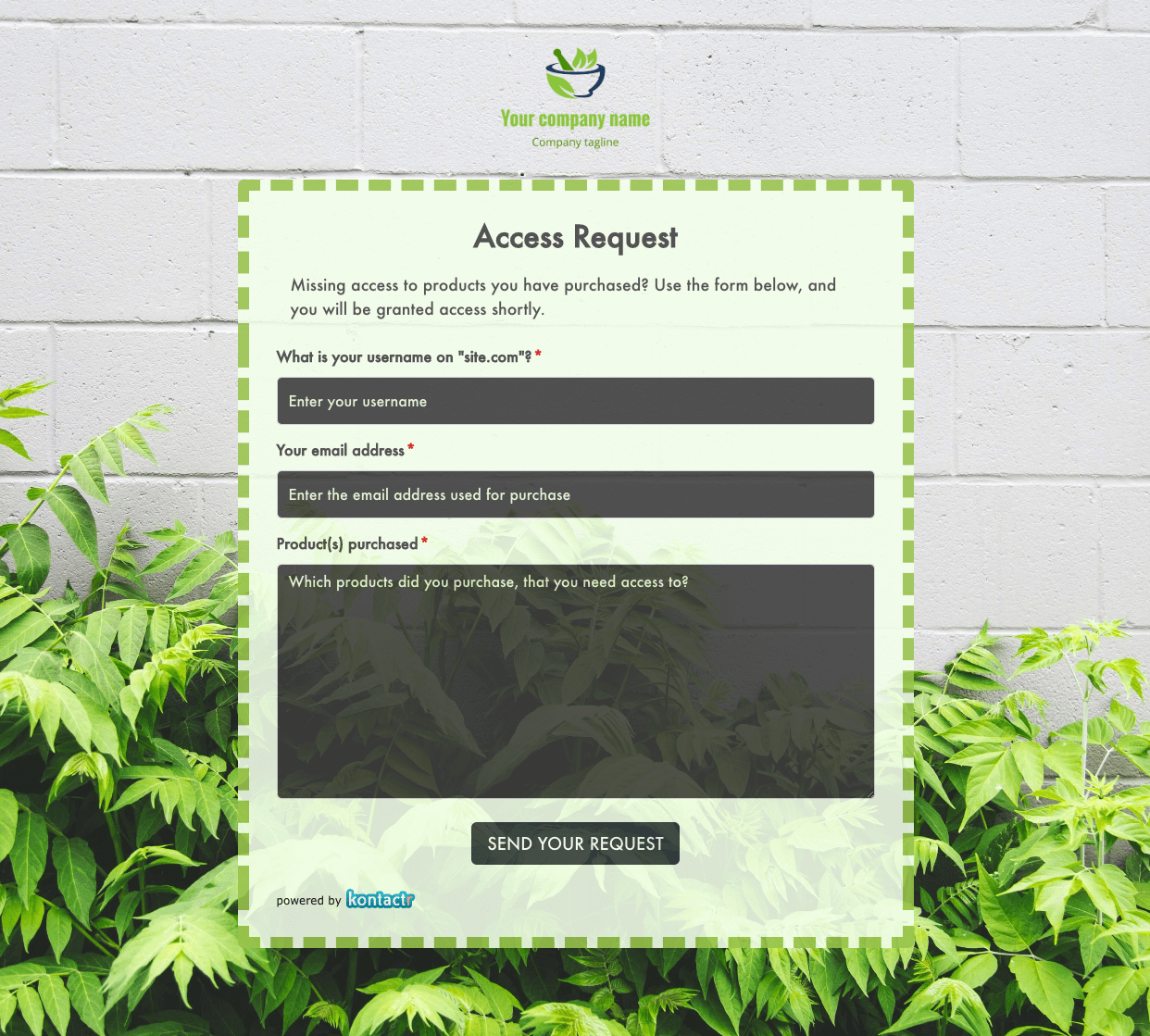 Access Request Form
Access Request Form
 Afterparty RSVP Form
Afterparty RSVP Form
 Band Discovery Form
Band Discovery Form
 Book a room Form
Book a room Form
 Booking Enquiries Form
Booking Enquiries Form
 Brochure Mailing Form
Brochure Mailing Form
 Buy a Home Form
Buy a Home Form
 Catalog Request Form
Catalog Request Form
 Coach Lines Quote Form
Coach Lines Quote Form
 Contact Us Form
Contact Us Form
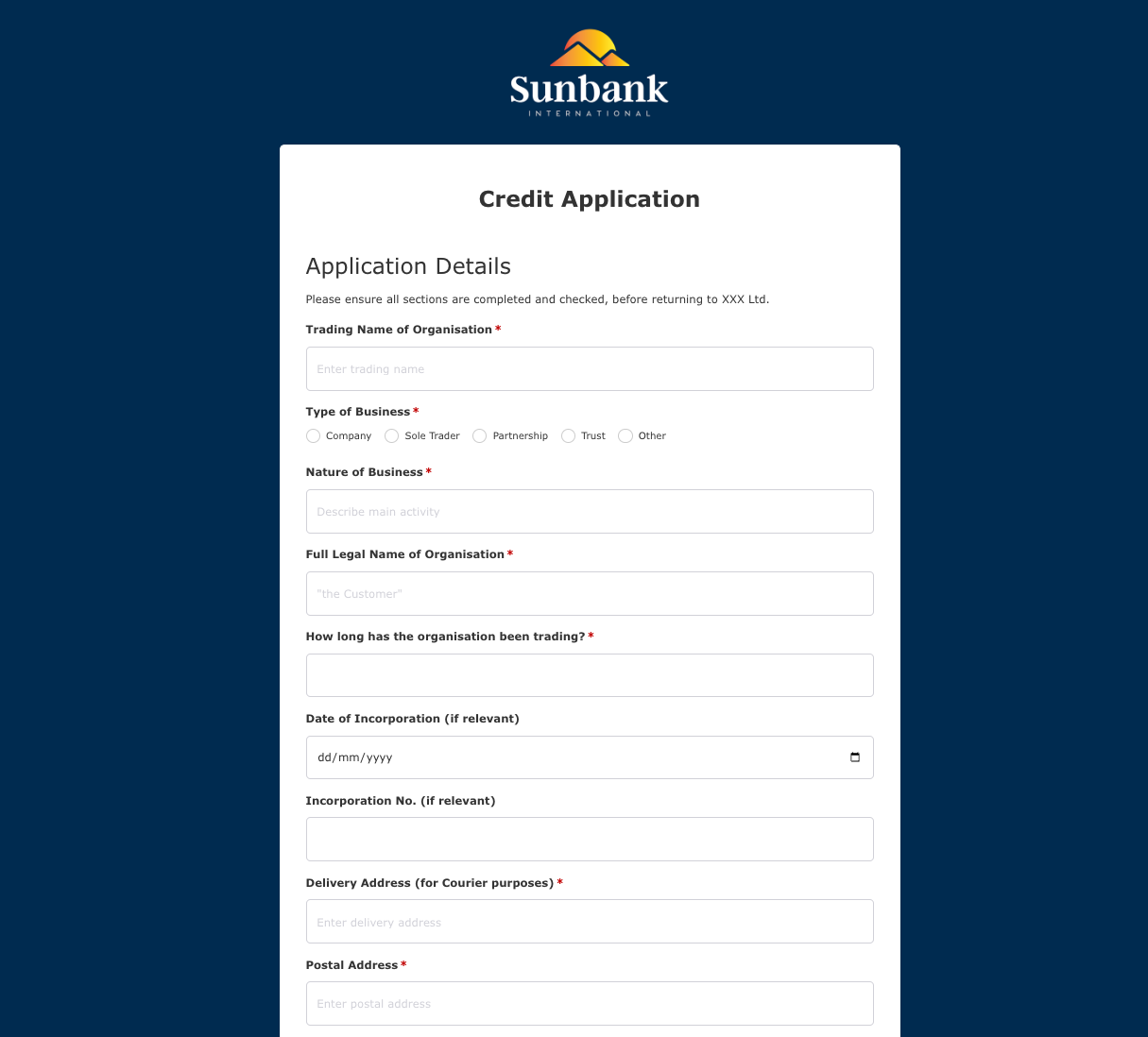 Credit Application Form
Credit Application Form
 Drop me a line Form
Drop me a line Form
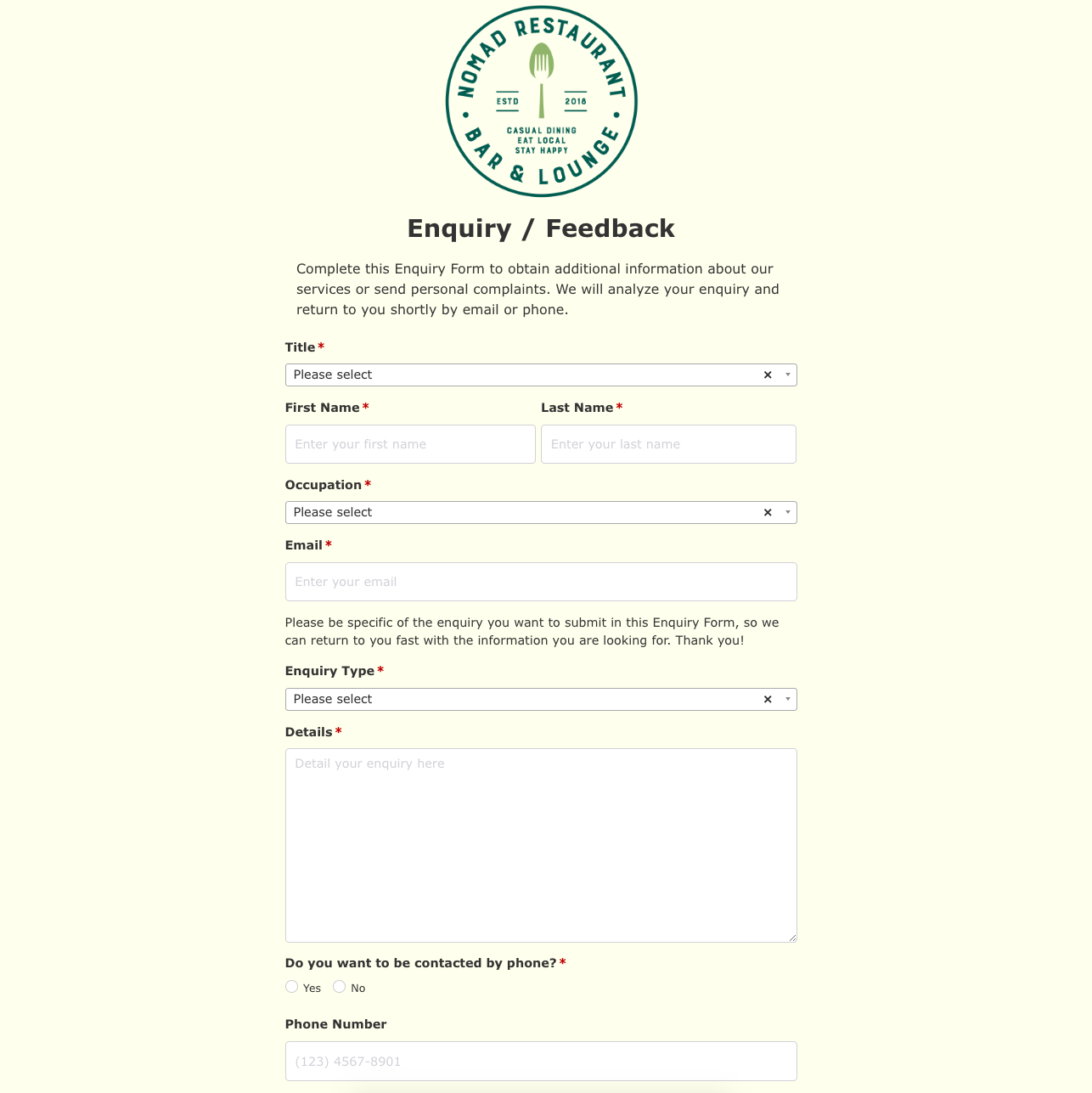 Enquiry / Feedback Form
Enquiry / Feedback Form
 Got a question? Form
Got a question? Form
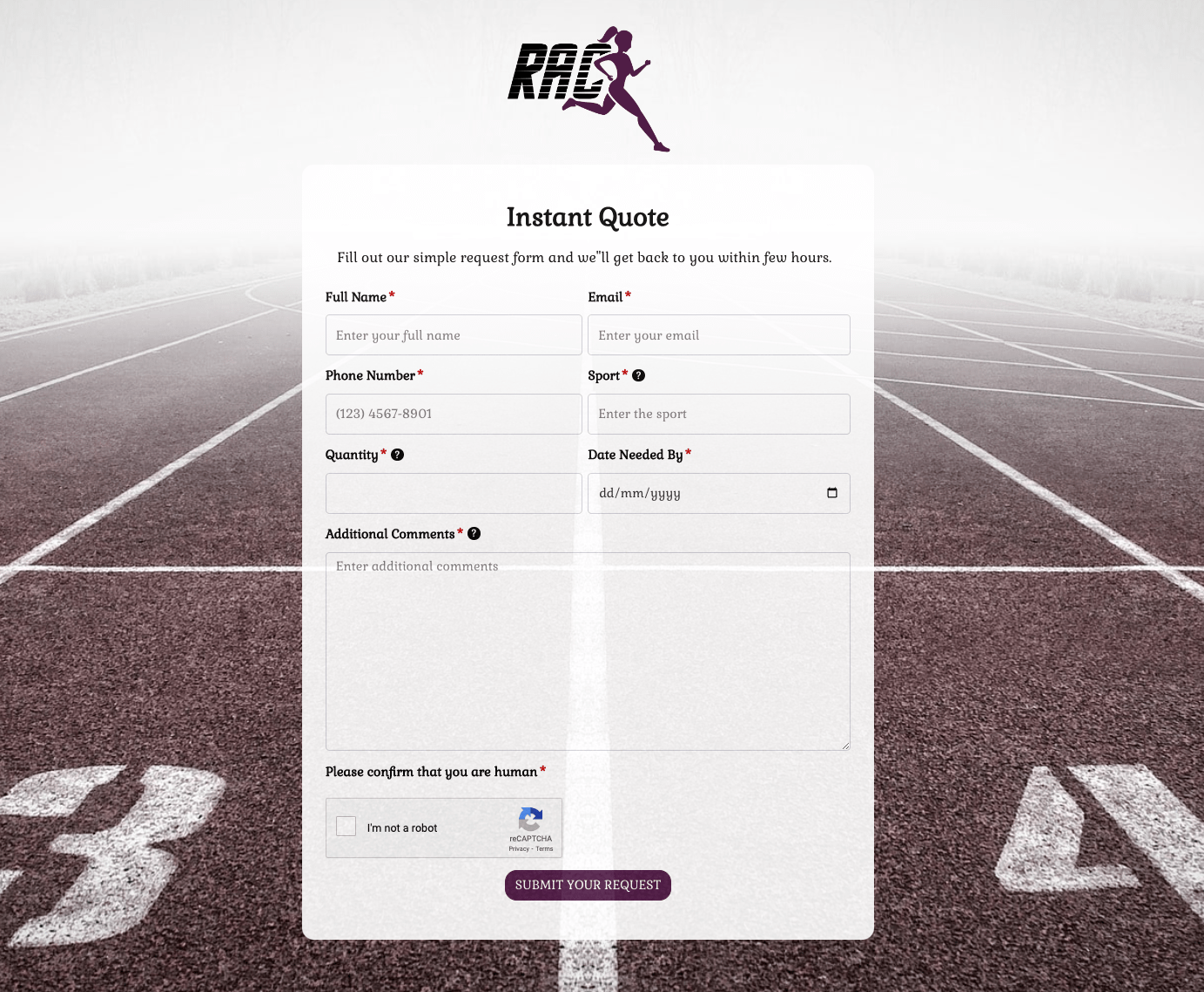 Instant Quote Form
Instant Quote Form
 Job Application Form
Job Application Form
 Language & Literacy Lab Form
Language & Literacy Lab Form
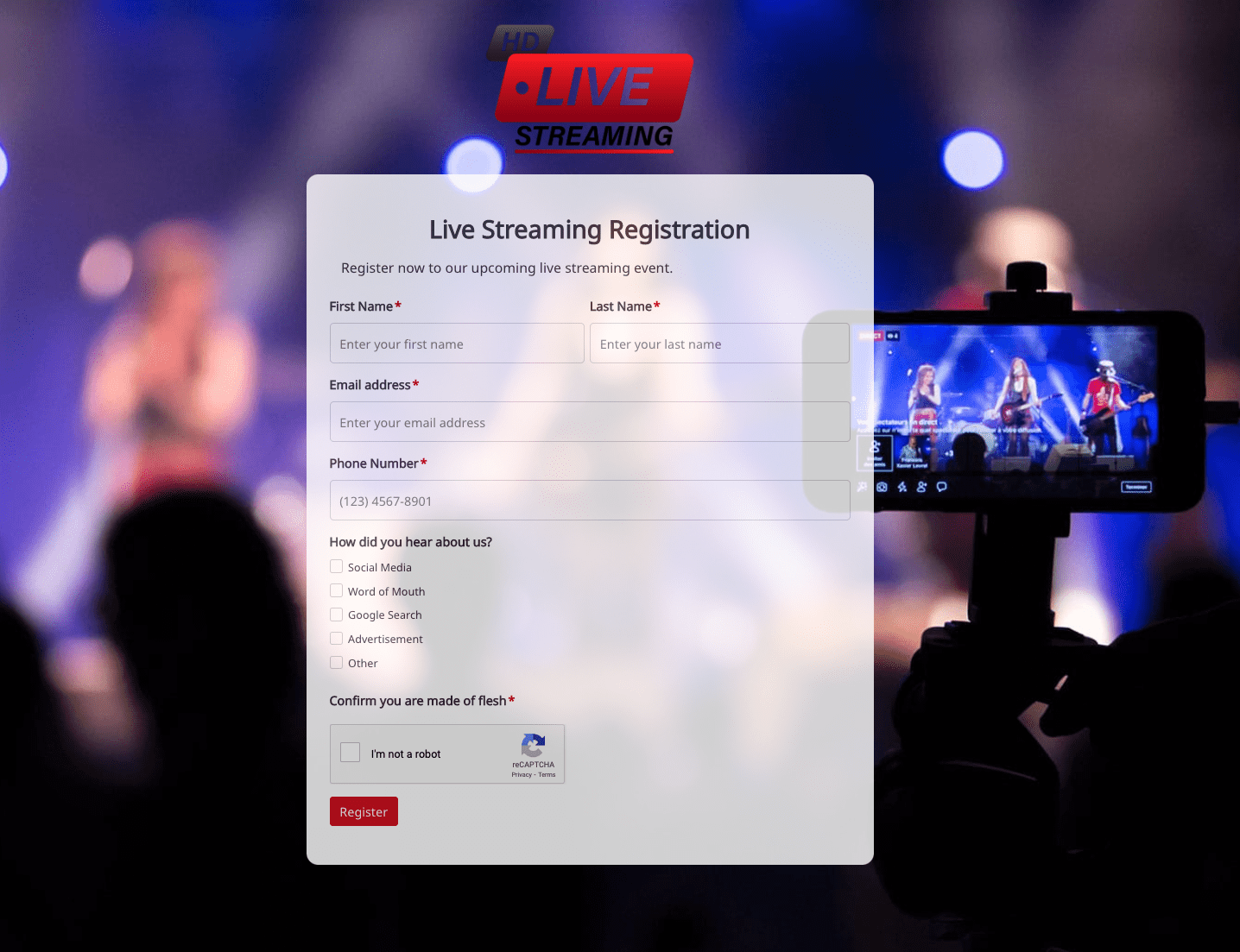 Live Streaming Registration Form
Live Streaming Registration Form
 More Information Form
More Information Form
 Order Exchange Form
Order Exchange Form
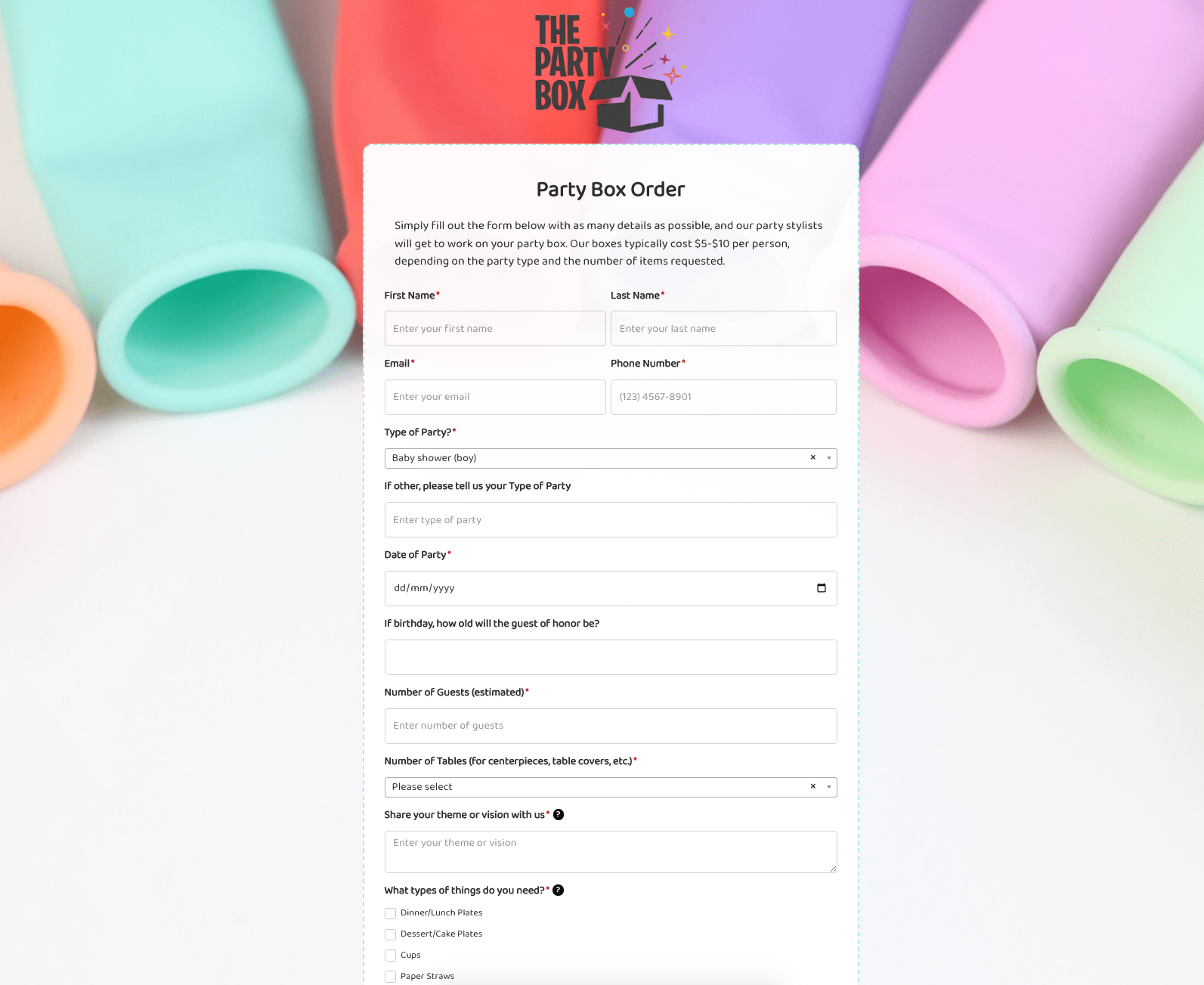 Party Box Order Form
Party Box Order Form
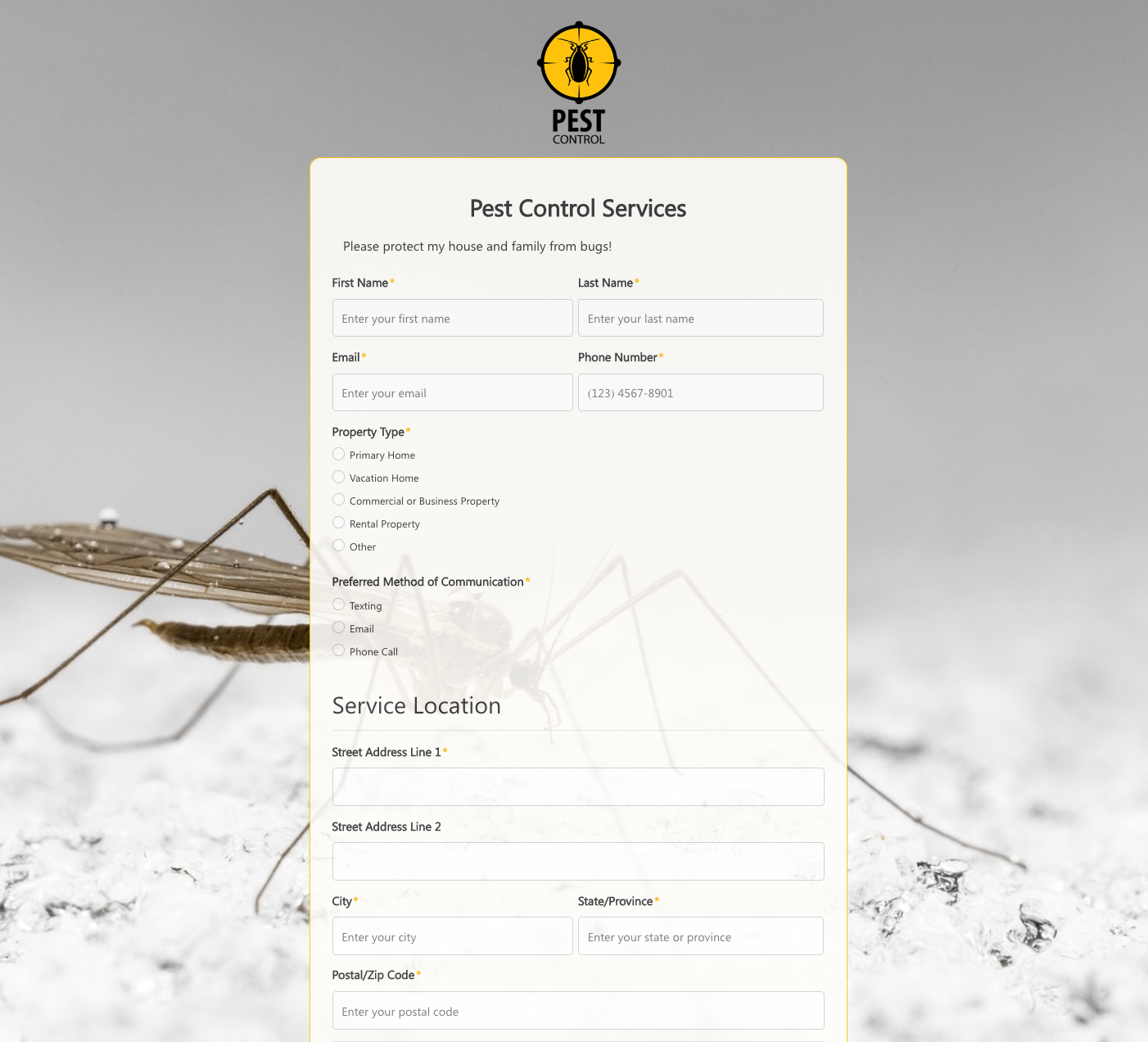 Pest Control Services Form
Pest Control Services Form
 Poll / Survey Form
Poll / Survey Form
 Receive Ebook Form
Receive Ebook Form
 Refinance Mortgage Form
Refinance Mortgage Form
 Remarks / Questions Form
Remarks / Questions Form
 Report Driver Form
Report Driver Form
 Retreat Information Form
Retreat Information Form
 Service Enquiry Form
Service Enquiry Form
 Skydiving Registration Form
Skydiving Registration Form
 Spare Part Enquiry Form
Spare Part Enquiry Form
 Staff Application Form
Staff Application Form
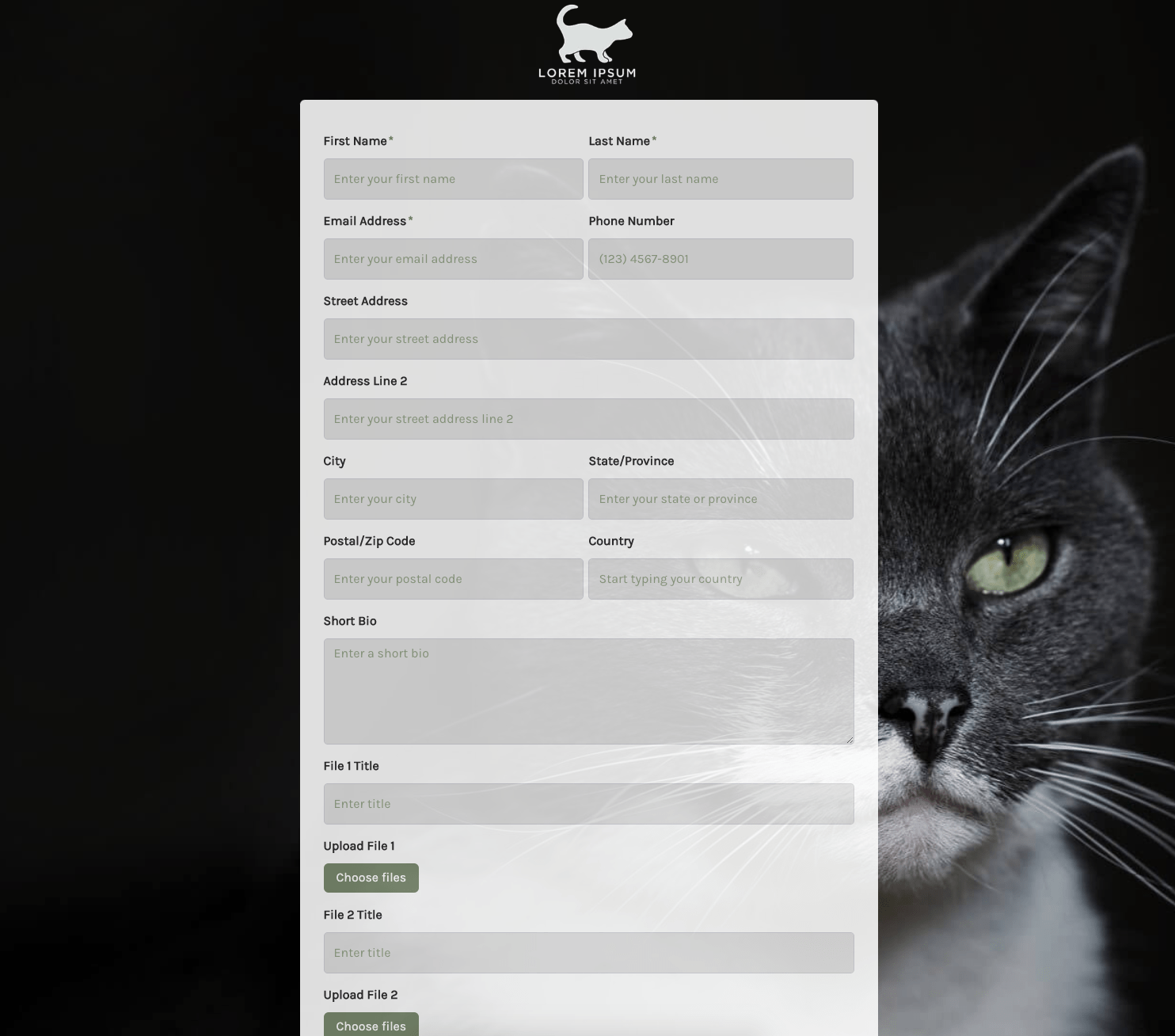 Submission Form
Submission Form
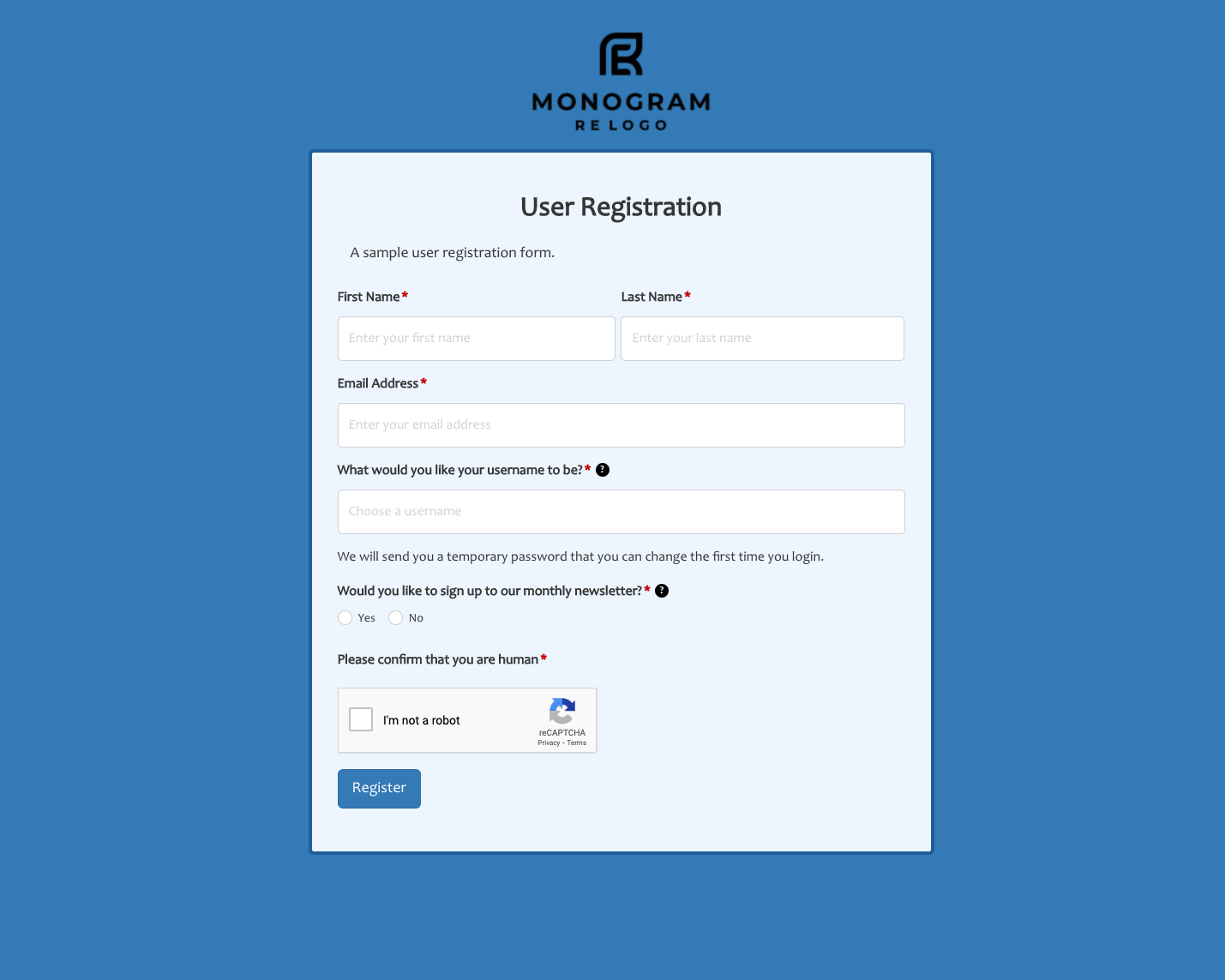 User Registration Form
User Registration Form
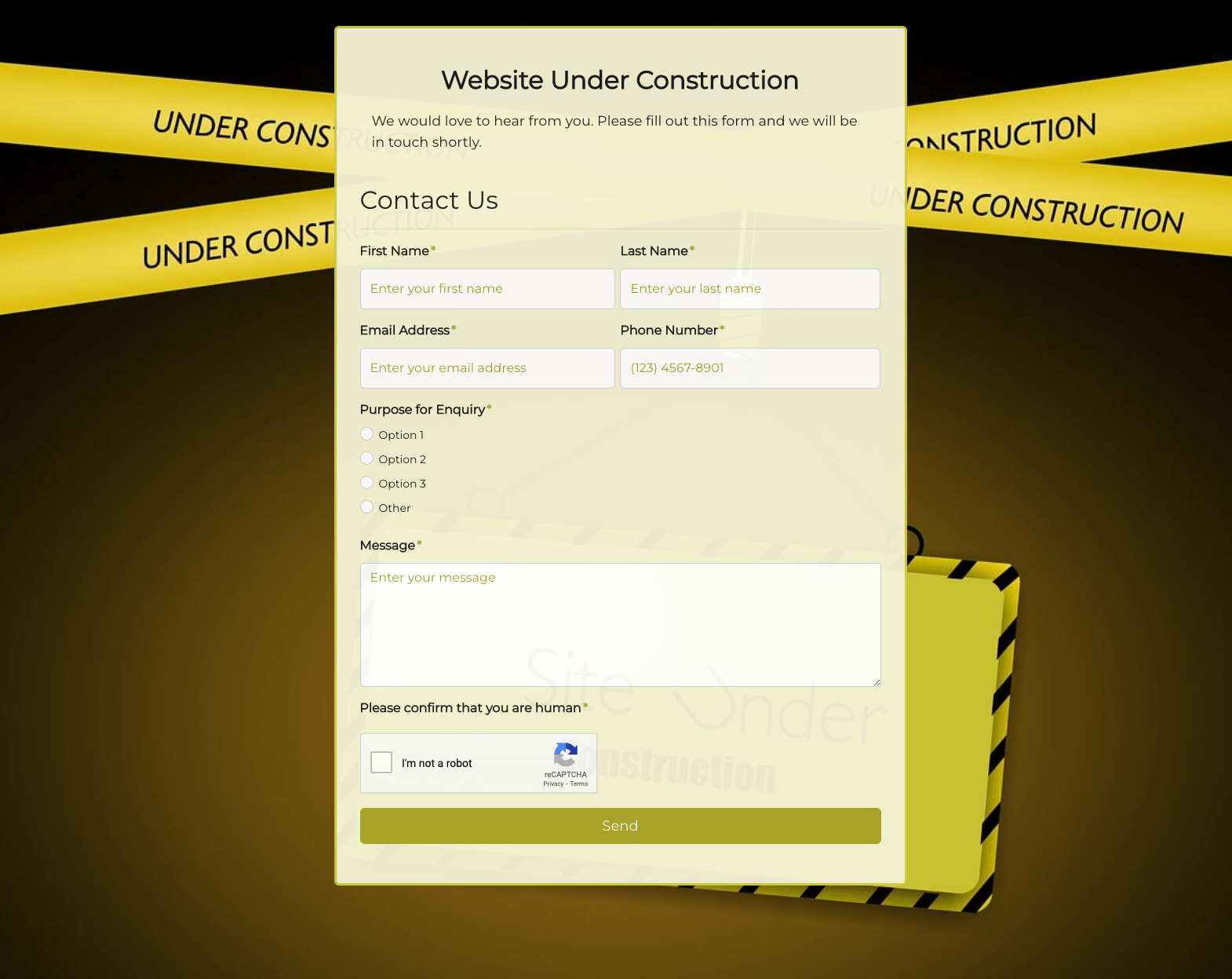 Website Under Construction Form
Website Under Construction Form
 Wedding Photographer Form
Wedding Photographer Form
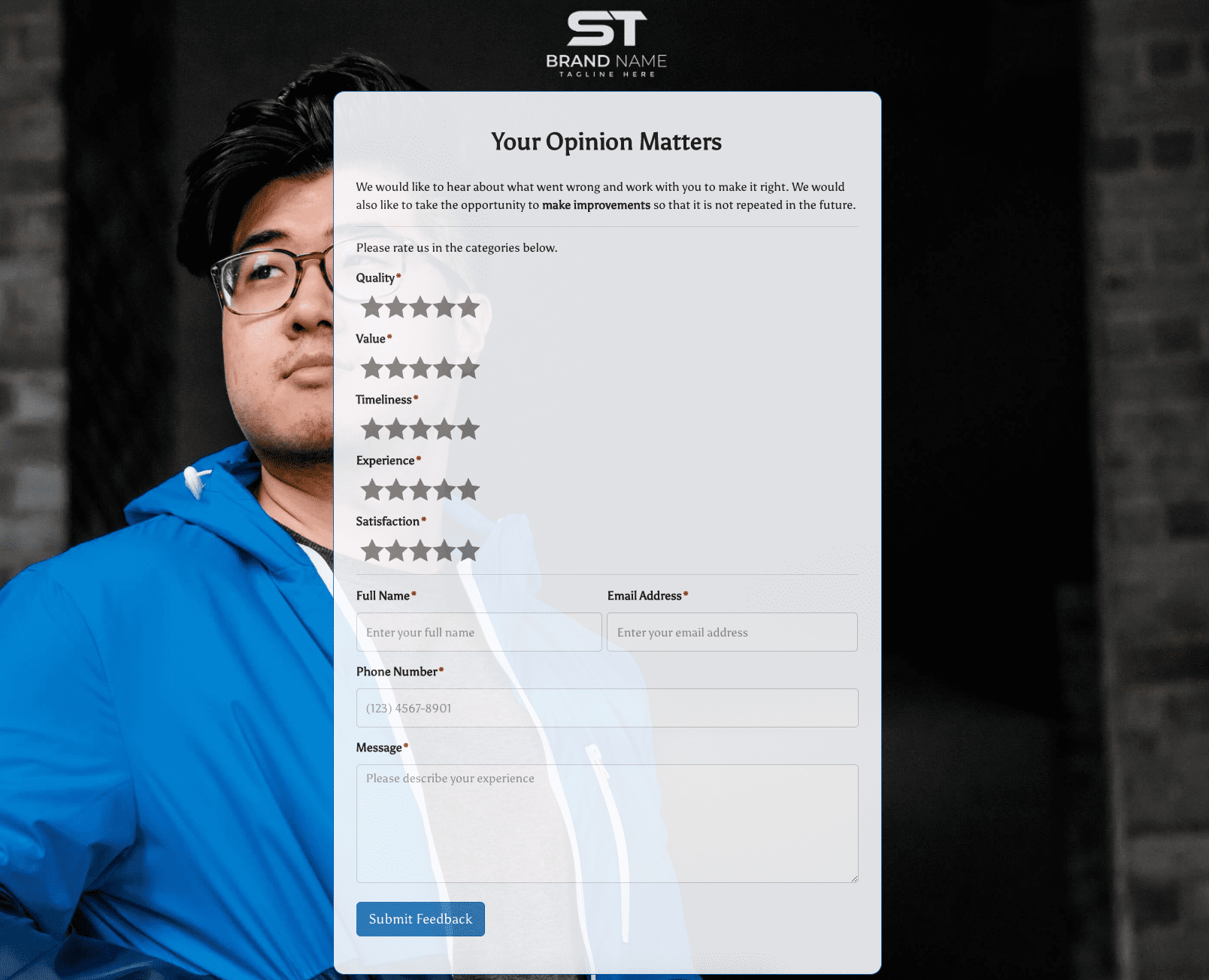 Your Opinion Matters Form
Your Opinion Matters Form














.png)





.jpg)








